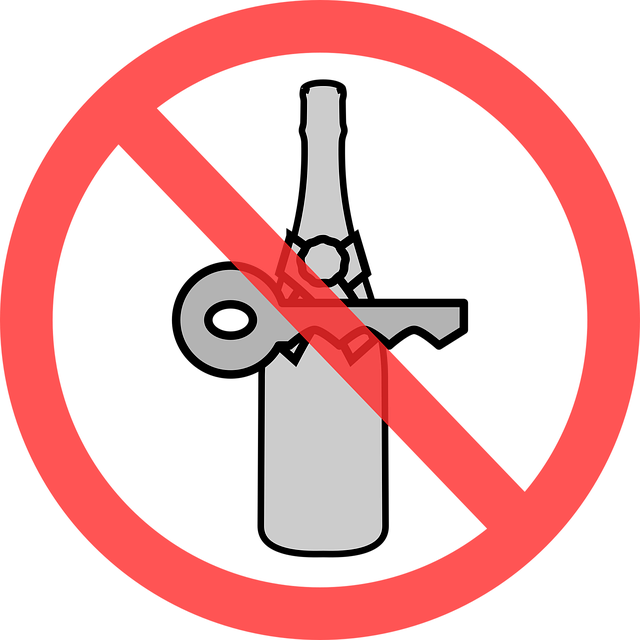Rural Community DUI Prevention faces unique challenges: limited resources, geographical barriers, cultural norms, and low law enforcement presence. Support groups are vital, offering safe spaces for mutual support, accountability, and shared experiences, reducing DUI incidents, and strengthening public health. Overcoming stigma and promoting inclusive environments encourage participation in prevention programs. Establishing robust support groups with evidence-based practices significantly contributes to long-term recovery success in rural communities.
In rural communities, where access to resources can be limited, addressing DUI (drunk driving) prevention presents unique challenges. This article explores how support groups play a pivotal role in facilitating recovery and mitigating rural community DUI risks. We delve into strategies that leverage the power of connection and trust-building to foster long-term behavioral changes. By examining effective approaches, from overcoming stigma to creating supportive networks, this guide offers insights crucial for enhancing rural DUI prevention efforts and promoting safer communities.
- Rural Community Challenges in DUI Prevention
- The Power of Support Groups for Recovery
- Building Trust and Connection in Small Towns
- Overcoming Stigma: Encouraging Participation
- Effective Strategies for Long-Term Success
- Creating a Network of Support and Accountability
Rural Community Challenges in DUI Prevention

Rural communities often face unique challenges when it comes to DUI (driving under the influence) prevention and recovery support. With limited access to resources and services compared to urban areas, addressing alcohol-related issues can be more complex. The low population density in rural regions might result in fewer specialized treatment centers, leading to longer travel distances for those seeking help. This geographical barrier can deter individuals from participating in support groups or accessing necessary care promptly.
Additionally, cultural norms and a lack of awareness about the dangers of DUI can contribute to higher rates of alcohol-impaired driving in these areas. Rural communities may also struggle with limited law enforcement presence and resources, making it harder to enforce strict DUI laws and educate residents effectively. Encouraging open dialogue and fostering community engagement are essential strategies to overcome these challenges and promote safe drinking habits and effective recovery support for those affected by DUI.
The Power of Support Groups for Recovery

Support groups play a pivotal role in facilitating recovery, especially within rural communities grappling with challenges like the rise of Rural Community DUI (drunk driving under influence) prevention. These gatherings provide a safe and non-judgmental space where individuals facing similar struggles can connect and offer mutual support. The power of shared experiences is undeniable; members find solace in knowing they’re not alone in their battles against addiction, which often requires immense courage to admit and address.
In the context of rural settings, where access to specialized treatment facilities might be limited, support groups become a cornerstone of community-based recovery initiatives. They foster a sense of belonging and encourage accountability as members hold each other responsible for personal growth and sobriety. This network effect amplifies the positive impact on individual lives, contributing to broader public health goals like reducing rural DUI incidents and fostering healthier, more resilient communities.
Building Trust and Connection in Small Towns

In small rural towns, where everyone knows each other, building trust within a support group for those recovering from substance abuse can be both an opportunity and a challenge. The tight-knit nature of these communities often means that personal struggles might already be well-known, creating a unique dynamic compared to larger urban settings. However, this familiarity also provides a strong foundation for connection and understanding. By fostering an environment where individuals feel safe to share their experiences without fear of judgment or exposure, support groups can thrive.
This sense of security allows members to open up about their battles with addiction, knowing they have the backing of fellow townsfolk who might be facing similar challenges. In a rural community with high rates of DUI (drunk driving) prevention concerns, these support groups can play a pivotal role in spreading awareness and offering a helping hand. The interconnectedness within small towns facilitates a powerful network where recovery becomes not just an individual journey but a shared goal for the entire community.
Overcoming Stigma: Encouraging Participation

In many rural communities, the stigma surrounding substance abuse and recovery can be a significant barrier to individuals seeking help. The fear of judgment or being labeled as “addicted” often prevents folks from participating in support groups like Recovery Together. However, it’s crucial to recognize that these gatherings are safe spaces where everyone is welcomed and supported, regardless of their past or present struggles.
Encouraging participation in rural community DUI prevention programs, such as Recovery Together, requires efforts to dispel myths and reduce stigma. By fostering an inclusive environment, we can ensure that those who need support feel comfortable taking the first step towards recovery. This involves educating the community about the benefits of peer-to-peer support and emphasizing that seeking help is a sign of strength rather than weakness.
Effective Strategies for Long-Term Success

In rural communities, where access to specialized services might be limited, establishing robust support groups for recovery can significantly contribute to long-term success in DUI prevention. One effective strategy is fostering a sense of community among members by creating safe, non-judgmental spaces where they can share their experiences and offer mutual encouragement. This camaraderie can strengthen the commitment to staying sober and provide a network of support that extends beyond formal meetings.
Additionally, integrating evidence-based practices into these groups can enhance their effectiveness. Regular sessions focused on cognitive-behavioral therapy techniques, stress management, and relapse prevention planning equip participants with valuable tools for maintaining long-term recovery. Tailoring these strategies to address the unique challenges faced by rural residents, such as limited transportation or access to healthcare, ensures that support groups become a powerful resource in the ongoing battle against DUI within rural community settings.
Creating a Network of Support and Accountability

In rural communities, where access to resources can be limited, establishing a support group for recovery from issues like substance abuse or DUI (drunk driving) is incredibly valuable. This initiative fosters a sense of community and creates a network of individuals who understand the unique challenges faced in rural settings. By coming together, participants can share their experiences, offer encouragement, and hold one another accountable—all vital aspects of a successful recovery journey.
These support groups provide a safe space to discuss struggles, celebrate milestones, and navigate the complexities of staying sober or avoiding repeat DUI offenses. In a rural community, where social connections might be fewer and more spread out, such groups offer much-needed structure and peer-to-peer support. This can significantly enhance local efforts in DUI prevention, as individuals are empowered to make positive changes while surrounded by a caring and supportive environment.
Support groups play a pivotal role in rural community challenges related to DUI prevention. By fostering trust and connection, these groups help individuals navigate recovery, overcome stigma, and embrace long-term success. Implementing effective strategies, such as building a network of support and accountability, can significantly enhance the positive impact of these gatherings. Encouraging participation in rural areas is crucial for creating a safer, healthier environment for everyone.






